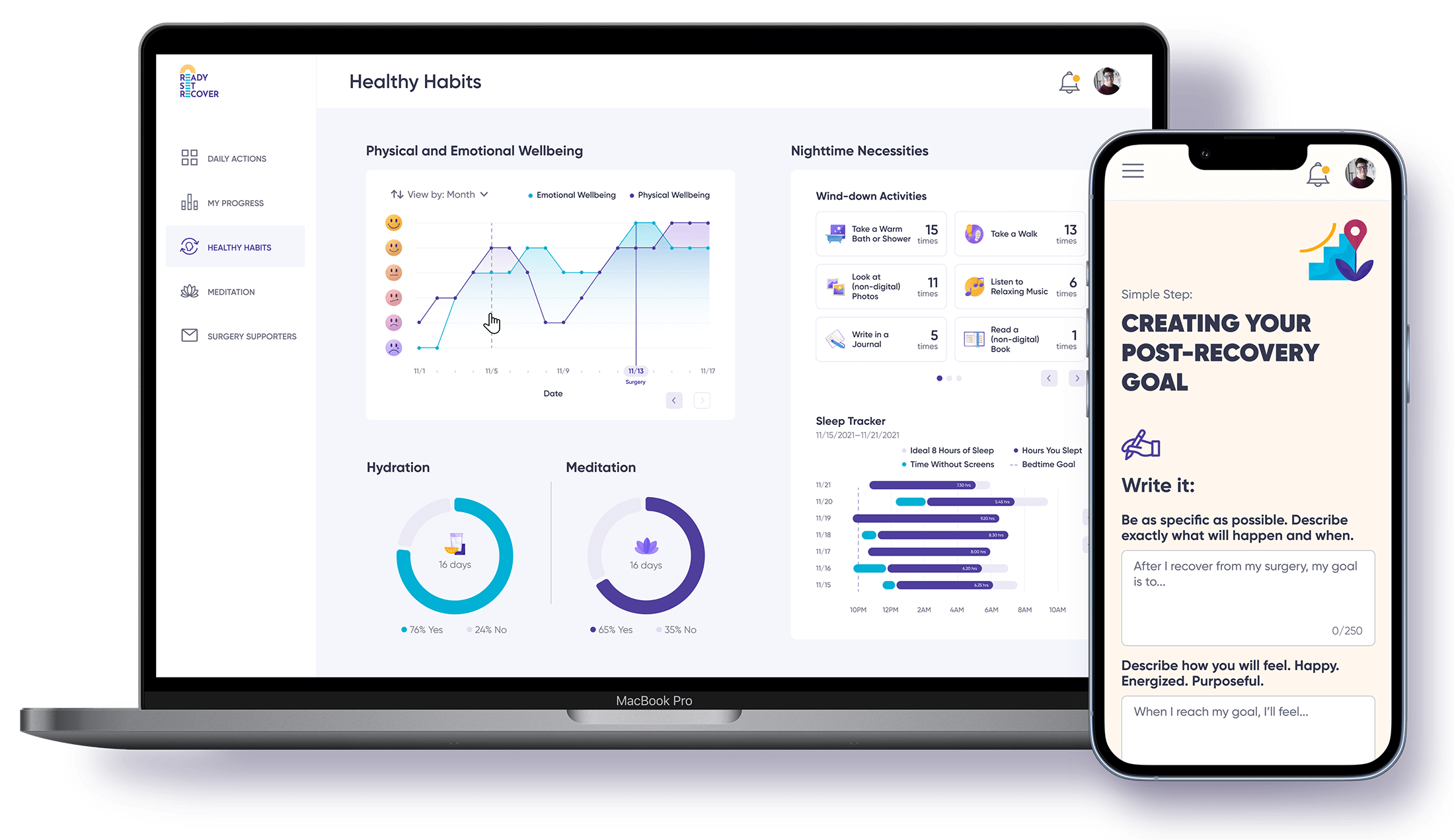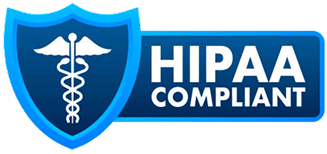Using AI for Medical Advice: Pros, Risks & Smart Usage


Can you trust using AI for medical advice? In this article, we break down the pros and cons of relying on AI for health information. We’ll cover its benefits, such as quick responses, and its risks, including inaccuracies and privacy concerns, plus tips for safe usage.
Key Takeaways
AI in healthcare offers benefits like quick, accurate responses, increased patient engagement, and democratized access to medical knowledge, but also has pitfalls such as potential for inaccurate information, data privacy concerns, and lack of personalized care.
The history of seeking health information has evolved from personal consultations and printed resources to internet-based platforms, and now to AI-driven tools that enhance the accessibility and comprehensiveness of medical advice.
To effectively use AI for health information, it’s crucial to ask specific questions, verify AI-generated advice with reputable sources, and consult with healthcare providers for confirmation and personalized care.
Introduction
What You Should Know About Using AI for medical advice
The internet has drastically changed how we seek health information. From traditional methods involving direct consultations and printed resources, we moved to online platforms and AI-driven tools. This shift has made health information more accessible but also introduced new challenges and considerations.
Pre-Internet Era

Before the internet, obtaining medical information was a more personal and community-driven process. People relied on:
face-to-face consultations with doctors, who provided diagnosis and treatment based on their medical expertise. These consultations were often thorough, involving detailed patient history, physical examinations, and sometimes even house calls. Doctors would spend significant time with each patient, ensuring they understood the diagnosis and treatment plan. The personal nature of these interactions fostered strong doctor-patient relationships, built on trust and mutual respect. Patients felt heard and cared for, knowing their healthcare provider had a comprehensive understanding of their medical history and personal circumstances. This method, while time-consuming, was highly effective in delivering personalized care and building a solid foundation for ongoing health management.
printed medical books, which were often the go-to resource for both medical professionals and the general public. These books ranged from comprehensive medical encyclopedias to specialized texts on specific conditions, offering detailed information on symptoms, diagnoses, and treatments. They were meticulously researched and written by experts in the field, ensuring a high level of accuracy and reliability. In households, family medical guides provided practical advice for everyday health issues, while more scholarly volumes were available in libraries and used by doctors and students for in-depth study. Despite their value, these printed resources had limitations, such as becoming quickly outdated as new medical knowledge emerged, and their accessibility was often limited to those who could afford them or had access to well-stocked libraries.
advice from family members, who often shared their own experiences and home remedies. In many cultures, family elders were considered the keepers of health wisdom, passing down knowledge through generations. This advice ranged from simple tips for common ailments to more complex treatments, often rooted in traditional medicine. While not always scientifically validated, these home remedies played a crucial role in everyday healthcare, especially in communities with limited access to professional medical services. Family members' advice was trusted and valued, contributing to a collective understanding of health and wellness within the household.
These were integral sources of health-related knowledge.

The Advent of the Internet

The emergence of the internet in the 1990s marked a significant shift in how people accessed health information. Health websites like WebMD and Mayo Clinic became primary sources for online medical advice. These platforms provided a wealth of information that was previously accessible only through medical professionals or extensive research in medical libraries.
Initially, there was skepticism about the credibility of online health resources. However, as more reliable sources became available, the public gradually accepted these digital tools. Online forums and communities like Reddit and and Quora also gained popularity for health discussions and shared experiences.
Current Trends in Online Health Information
Today, the internet is a primary resource for health-related questions, including mental health, and self-diagnosis. Statistics show a significant rise in digital health-seeking behavior, with 61.2% of adults used the internet first for their most recent health information search in 2008, rising to 74.4% in 2017. This trend has impacted patient-doctor relationships, as patients now come to consultations armed with information from the internet, sometimes leading to more informed discussions but also occasionally causing friction.
Transition to AI in Health Information
The introduction of AI in healthcare marks the latest evolution in how patients access and understand medical information. AI tools like symptom checkers and chatbots are enhancing the accessibility and comprehensiveness of health information.
The Potential Benefits of Using AI
Big Data can Mean Better Info
Equipped with the ability to process vast amounts of data, AI can synthesize information from numerous internet sources. This ability allows AI to find obscure research studies that might provide unique insights not widely known. Additionally, AI systems can cross-reference and validate information from multiple databases, ensuring a higher degree of accuracy and reliability in the medical advice provided. By leveraging machine learning algorithms, AI can continuously improve its understanding and analysis of medical data, adapting to new research findings and evolving medical practices. This dynamic capability positions AI as a powerful tool in the ongoing quest for medical knowledge and innovation.
In addition, AI systems can identify patterns in large datasets, offering a more comprehensive understanding of medical conditions and potential treatments than a human could achieve alone. By analyzing vast amounts of health data, AI can uncover correlations and trends that might not be immediately apparent to human researchers.
And let's face it, humans have limited time to keep up with the latest research or analyze vast amounts of data for statistical accuracy, but computers are exceptionally well-suited for this type of work.
Engaged Patients are Better Patients
Patients who use AI to research their conditions take an active role in their health, and active and engaged patients have better outcomes. This engagement is critical because before taking steps to improve health, individuals must understand why they should and what actions to take. AI can educate patients, making them more informed and proactive in managing their health.
Additionally, AI can facilitate better communication between patients and healthcare providers. When patients are well-informed and engaged, they can have more meaningful conversations with their doctors, ask pertinent questions, and better understand their treatment plans. This collaborative approach can lead to more accurate diagnoses, effective treatment strategies, and ultimately, improved health outcomes.
Convenience
One of the most significant advantages of AI chatbots is their convenience. Unlike traditional Google searches that require clicking through multiple links and reading long articles, AI chatbots offer immediate, specific answers to health-related questions. Instead, AI can distill the information into easily understandable responses. This is particularly useful when trying to interpret information such as clinical studies, which are often not easily understood by people outside the medical profession.
Moreover, the convenience of AI chatbots extends beyond just quick answers. They are available 24/7, providing round-the-clock assistance without the need for an appointment. This constant availability ensures that users can get the information they need at any time, whether it's in the middle of the night or during a busy workday.
Furthermore, AI chatbots can serve as a triage tool, helping users determine the urgency of their medical issues. By asking a series of questions, the chatbot can assess the severity of symptoms and advise whether the user should seek immediate medical attention or if they can manage the condition with home remedies. This functionality not only saves time but also reduces unnecessary visits to healthcare facilities, easing the burden on medical professionals.
Access for All

AI has the potential to democratize access to medical knowledge, reducing healthcare disparities. When accurate and comprehensive medical information is available to everyone, regardless of location or income, it can lead to:
More equitable health outcomes
Improved diagnosis and treatment options for underserved populations
Increased patient empowerment and engagement in their own healthcare
Enhanced efficiency and effectiveness of healthcare delivery
AI has the potential to:
Bridge the gap between different socioeconomic groups
Make medical advice accessible to a wider audience
Ensure equal opportunity for everyone to make informed health decisions.
The Potential Pitfalls of Using AI
While AI offers many benefits, it also comes with potential pitfalls. Addressing these issues is crucial for the safe and effective use of AI in healthcare.
Inaccurate Information and Hallucinations
Sometimes, AI chatbots can fabricate medical advice, which could lead to potentially harmful recommendations. These systems might provide misinformation due to a lack of weighted sources and susceptibility to hallucinations in their responses. This means that while AI can aggregate and analyze vast amounts of data, it doesn't always distinguish between high-quality, peer-reviewed studies and less reliable sources. As a result, the information it provides can sometimes be misleading or outright incorrect. Additionally, AI systems can experience "hallucinations," where they generate responses that are not based on any actual data but rather on patterns they have learned, which can lead to bizarre or dangerous advice. For instance, AI has been known to advise users to eat rocks for minerals, showcasing the potential danger of AI-generated misinformation.
Inaccuracies in AI-generated health information can arise from its reliance on flawed sources not grounded in scientific evidence. This can lead to incorrect diagnoses or treatment recommendations that contradict established medical guidelines, posing significant health risks.
Non-Real-Time Information Updates
AI systems may not always provide the most current medical data, which is critical for accurate diagnoses and treatment. The lack of real-time information updates can result in outdated or incorrect medical advice, highlighting the importance of verifying AI-generated information with up-to-date sources.
Quality of AI Responses
The quality of AI responses heavily depends on the quality of user prompts. Users must ask the right questions to receive accurate and relevant information. However, not everyone knows how to frame their health-related queries effectively, which can lead to suboptimal AI-generated advice. To improve this situation, it’s essential for AI systems to be designed to answer questions more intuitively and accurately.
Ensuring that users receive accurate responses requires:
Continuous improvement of AI systems
Better user education on how to interact with these tools
Providing detailed prompts
Verifying the information received
Lack of Personalized Care
AI applications may not account for unique genetic, clinical, and lifestyle factors of individuals, resulting in less personalized care. Unlike human medical professionals who consider a person’s overall health and medical history, AI systems might overlook these critical aspects, leading to generic and less effective medical advice.
Data Privacy Concerns

Data privacy is a significant concern with AI in healthcare. The risk of data breaches and unauthorized access to sensitive patient information poses serious security risks.
The sharing of personal health information with AI systems could potentially violate privacy, underscoring the need for robust data protection measures.
AI Bias
Biases in AI training data can result in unequal treatment or misdiagnosis of certain demographic groups. Health care algorithms might amplify existing racial inequalities if they include biases against underrepresented communities. Incorrect assumptions about certain patient populations can lead to inappropriate care recommendations.
Addressing AI bias involves:
Engaging patients and communities throughout the algorithm’s life cycle
Ensuring accountability for equity and fairness in algorithmic outcomes
Monitoring and correcting inequities in AI-driven healthcare practices
Best Practices for Using AI Tools for Health Information
Be Specific and Provide Details
Providing detailed prompts when consulting AI to answer medical questions can significantly enhance the accuracy of the responses. When users take the time to craft specific and detailed questions, they help the AI better understand the context and nuances of their health concerns. This leads to more precise and relevant answers, which can be invaluable in managing one's health.
For example, instead of asking a broad question like "What should I do for a headache?", a more detailed prompt would be "What are the recommended treatments for a migraine headache that doesn't respond to over-the-counter medication and has been persisting for more than three days?" This level of specificity allows the AI to provide tailored advice that takes into account the severity and duration of the symptoms, as well as previous treatment attempts.
By asking specific questions, such as:
Can you explain this diagnosed condition in detail?
What are the treatment options and their potential side effects?
Are there any potential drug interactions I should be aware of?
What advice do you have for managing these symptoms?
Additionally, you can inquire about preventive measures and lifestyle changes that could improve your condition. For example:
Are there any dietary changes I should consider?
What exercises or physical activities are recommended for my condition?
How can I monitor my symptoms effectively at home?
Are there any alternative therapies that might complement my treatment?
These types of questions help you gain a more nuanced understanding of your health situation and enable you to make informed decisions about your care.
Verify Information with Reputable Sources
It’s a good idea to cross-check AI-generated medical information with credible sources to ensure its accuracy. Generative AI might not always specify the source of its information, reducing transparency compared to standard searches.
Verifying the reliability of the sources helps prevent the spread of false medical information and ensures that the accurate medical advice is current and safe to follow.
Follow Up with a Healthcare Provider
After receiving AI-generated advice, it’s really important to consult a healthcare provider to confirm its accuracy and applicabilityto your particular situation. Even as AI improves, it should be a supplemental resource used in conjunction with the advice of medical professionals.
Healthcare providers have the expertise and experience to interpret AI-generated information within the context of your unique medical history and current health status. They can provide personalized insights that AI might overlook, such as potential interactions with other medications you are taking, or considerations related to chronic conditions you may have. By discussing AI-generated advice with your healthcare provider, you ensure that the information is not only accurate but also tailored to your specific needs.
Moreover, healthcare providers can help you understand the limitations of AI tools. While AI can process vast amounts of data and identify patterns, it may not always capture the nuances of individual cases. Your provider can offer a more holistic view, integrating AI insights with their clinical judgment and your personal health goals.
AI Is Helpful, but Using AI for Medical Advice Isn’t Perfect

AI’s future in healthcare holds immense promise. AI-enabled solutions are rapidly evolving, increasing the accuracy of medical diagnoses, treatment plans, and patient care. AI is expected to enhance various facets of healthcare, including clinical trials, self-management of care, and personalized medicine, making it an exciting time for the industry.
Yet, like any new technology, it will face challenges along the way. It’s important to proceed with both optimism and caution, addressing potential pitfalls such as data privacy concerns, biases, and the need for real-time information updates. By continuously improving AI systems and ensuring robust ethical standards, the full potential of AI in healthcare can be realized.
Frequently Asked Questions
How has the internet changed the way we seek health information?
The internet has made health information more accessible through online platforms and AI-driven tools, but has also brought new challenges. It has shifted the way we seek medical knowledge from traditional face-to-face consultations and printed resources.
What are the benefits of using AI in healthcare?
Using AI in healthcare can lead to improved accuracy of medical information, increased patient engagement, convenience, and democratized access to medical knowledge, ultimately reducing healthcare disparities.
What are the potential pitfalls of using AI for medical advice?
Using AI for medical advice carries the potential pitfalls of providing inaccurate information, lack of real-time updates, personalized care deficiency, data privacy concerns, and AI bias which can lead to unequal treatment or misdiagnosis. Be cautious when relying solely on AI for medical guidance.
How can I ensure the accuracy of AI-generated medical information?
You can ensure the accuracy of AI-generated medical information by providing detailed prompts, verifying the information with reputable sources, and consulting a healthcare provider to confirm its applicability to your specific situation. Always remember to double-check the information for accuracy and consult with a professional.
What is the future of AI in healthcare?
The future of AI in healthcare looks promising, with potential advancements in clinical trials, medical diagnosis, treatment plans, self-care management, and personalized medicine. However, challenges like data privacy, biases, and real-time information updates need to be addressed.
How to use AI to make a medical diagnosis?
AI analyzes patient data, scans, and test results to detect patterns and suggest possible diagnoses. Doctors use these insights alongside their expertise to confirm findings.






